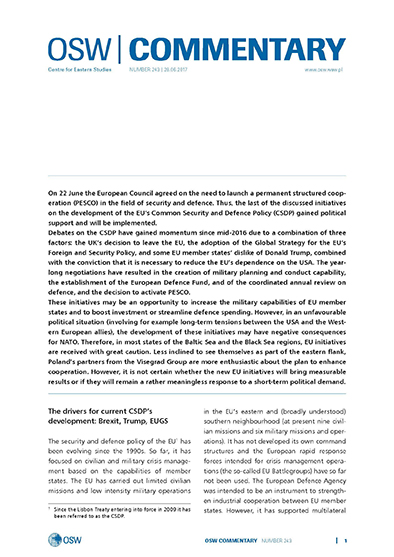Slovakia: the Eurogroup’s enfant terrible
Slovakia: the Eurogroup’s enfant terrible
Author(s): Jakub Groszkowski
Subject(s): Economic policy, EU-Approach / EU-Accession / EU-Development, Geopolitics
Published by: OSW Ośrodek Studiów Wschodnich im. Marka Karpia
Keywords: Slovakia; Eurogroup
Summary/Abstract: When Slovakia’s parliament rejected the European Financial Stability Facility (EFSF) reform on 11 October it undermined Slovakia’s reputation as a credible partner within the EU. Moreover, Prime Minister Iveta Radičová combined the vote on the strengthening of the EFSF – a key anti-crisis mechanism in the Eurozone – with a vote of confidence for her cabinet. This eventually led to the collapse of the government. Before Slovakia’s decision, the strengthening of the EFSF had been endorsed by the national parliaments of all the eurozone countries. Slovakia, which had opted to be the last one to carry out the ratification procedure, adopted the EFSF reform only in a re-vote on 13 October, due to the support of the opposition left-wing party. However, problems with ratification have cast a shadow over the achievements of Slovakia which as one of the freshest members of the eurozone had been actively seeking to influence the creation of EU mechanisms for dealing with the debt crisis.
Series: OSW Commentary
- Page Count: 8
- Publication Year: 2011
- Language: English
- Content File-PDF

